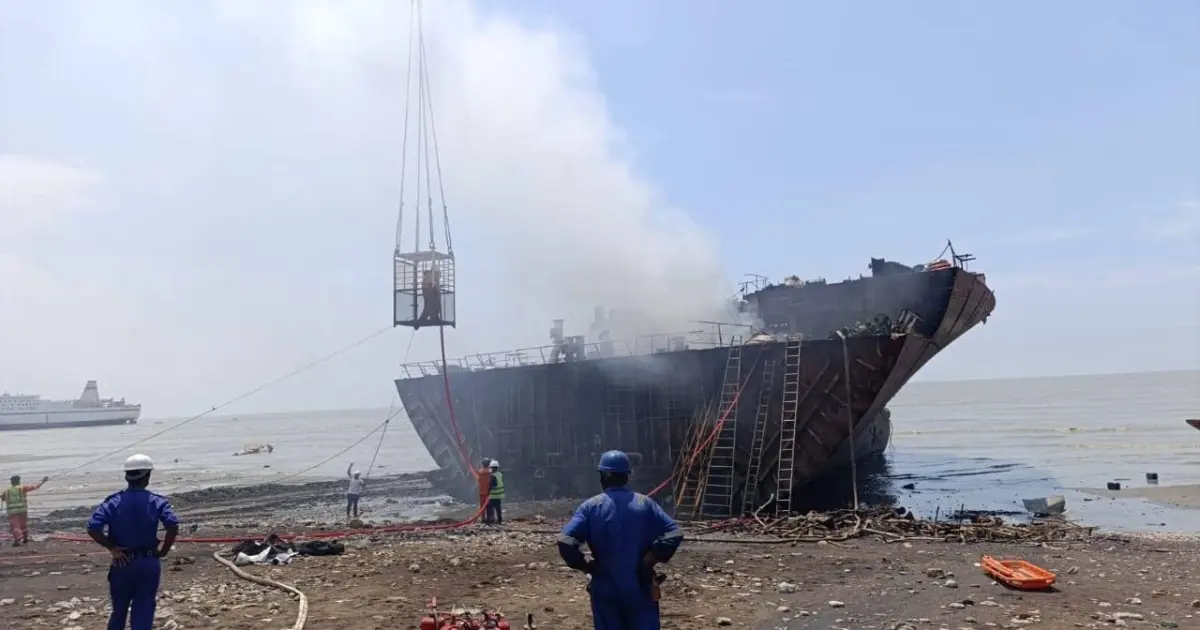Bangladesh’s shipbreaking industry, operating along the Chittagong coastline, and under fire for environmentally unsound practices including destruction of forests and coastal pollution, remains the only local source of raw materials for the country’s iron and metal industry, industrialists said Thursday.
The breaking yards supplied over 1.5 million metric tonnes of scrap metal last year to steel re-rolling mills and export-oriented light engineering industries mainly producing spare parts and bicycles, saving the country from expensive imports, they said.
The points were made in the inaugural session of a recently launched project by the Global Enterprise Network of Iron and Metal Industries (GENII), backed by the European Commission, in collaboration with the Dhaka Chamber of Commerce and Industry at the DCCI auditorium.
The country’s shipbuilding industry, with over 200 operators, dominated by some 10 major enterprises, is also emerging, with total turnover from the sector standing at $500 million last year, said participants.
Ananda Shipyard & Slipways Ltd, the leading shipbuilder, earned $378 million alone last year by supplying vessels to Denmark and more export orders are underway.
But, the shipbuilding sector has many unexplored avenues, as only 10 percent of the manufacturing of a ship is done with materials produced in Bangladesh, whereas the rest have to be imported.
The GENII project will develop an internet-based portal to strengthen networks among metal industry companies in Bangladesh, China, Denmark and Sweden, said participants.
Under the project, DCCI will carry out surveys, create a database and promote expansion of the industry with logistics support, with a vision to facilitate the small and medium enterprises of the sector.
Industries minister Dilip Barua, addressing the inaugural ceremony, said the present government is eager to take necessary steps to ensure an investment-friendly environment.
“We want a vibrant private sector for rapid industrial growth focusing on Public Private Partnership (PPP) in the country,” Barua added.
The minister said the formulation of a comprehensive industrial policy is underway to meet the advantages and challenges of sectors such as the metal industry.
Danish ambassador Einar Hebogaard Jensen said Bangladesh has the potential for more development of the sector, but it needs to avail more foreign investment and joint ventures.
DCCI president Zafar Osman said the GENII project will find new scopes for Bangladeshi products, and take necessary initiatives to develop the workforce involved in the industry through information technology.
The inauguration was followed by a workshop with the participation of representatives from different SMEs and individuals functioning in the sector.


Leave a Reply
You must be logged in to post a comment.